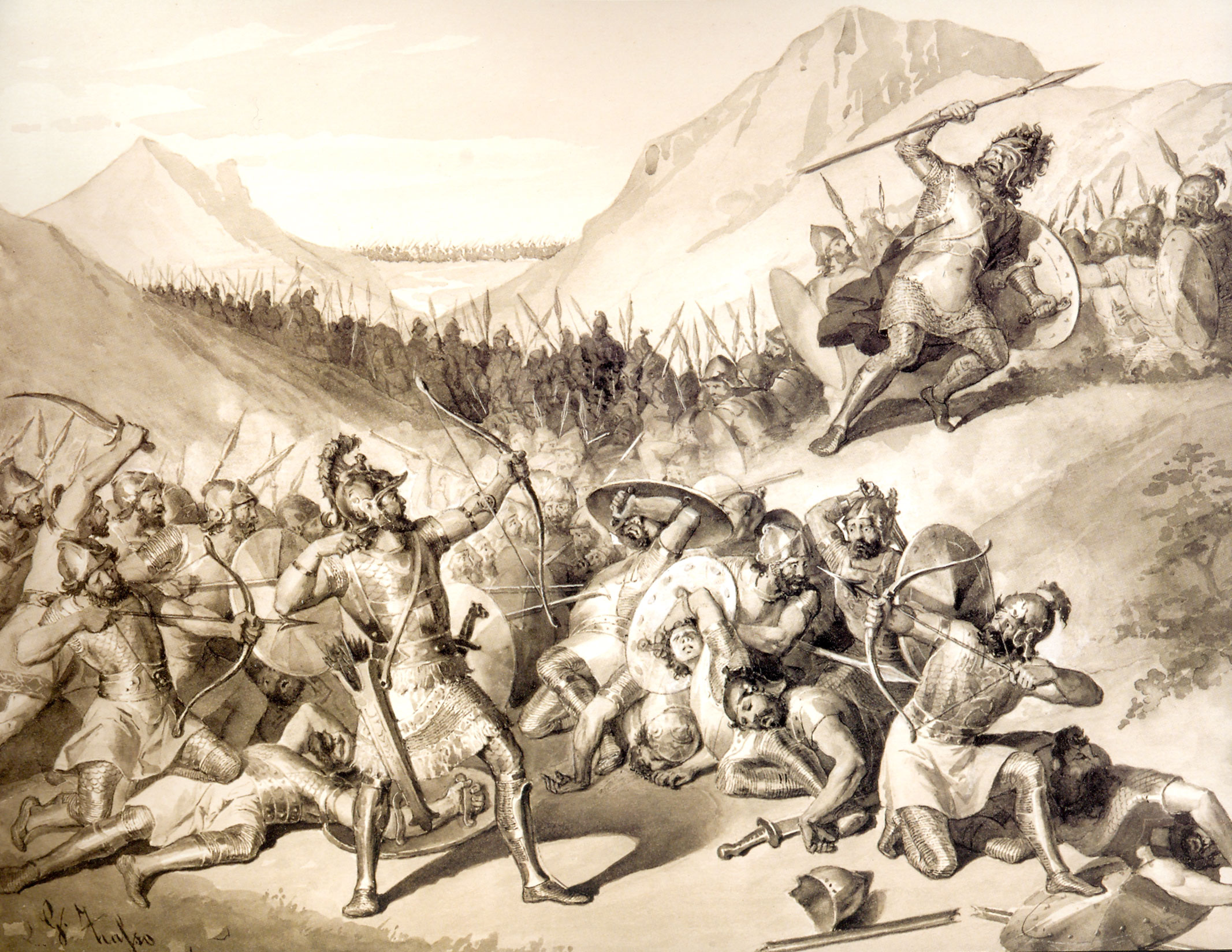Hello,
I have noticed several Hebrew words inside the Armenian language, which may be of interest to you.
Examples:
khoz խոզ - pig - chazir (Haza is a yiddish word for a pig) חזיר
gaghuth գաղութ - diaspora - galut גלות
khanuth խանութ - shop - hanut/chanut חֲנוּת
hashiv հաշիվ - account - chesh/chesbon חשבון
shuka շուկա - market - shuk שוק
shapath շապաթ - saturday - shabbat שַׁבָּת (kiraki or sunday is the first day of the week just like in Israel, and monday is the second)
Astvats/Astuats - God - Asherah or Ashtorat/Astarte (Northwest semitic/Greek word for goddess of fertility derived from Ishtar [East semitic or Akkadian goddess], in turn derived from Inanna [Sumerian goddess], in turn derived from Hannahannah [Hurrian goddess])
Note: Inanna's symbol is an eight-pointed star or a rosette. The words "Astr/Astgh/Astro" which became the word Star in English are related. (In turn, Astvat-ereta is an alternate name for Saoshyant, or the last saviour expected by Zoroaster)
har minni (The Minni of the mountains/hills/city mounds? in Hebrew)(or mountains of the Minni?)
Could also be "hur" + "minni". Just a thought - this might prove that the Armenians are a mix of Mannaeans (mini/minni of the bible), who spoke an Iranic language more favoured by Cyrus of Persia than, say, the Hurrian language.
Hope you enjoyed the read.
I have noticed several Hebrew words inside the Armenian language, which may be of interest to you.
Examples:
khoz խոզ - pig - chazir (Haza is a yiddish word for a pig) חזיר
gaghuth գաղութ - diaspora - galut גלות
khanuth խանութ - shop - hanut/chanut חֲנוּת
hashiv հաշիվ - account - chesh/chesbon חשבון
shuka շուկա - market - shuk שוק
shapath շապաթ - saturday - shabbat שַׁבָּת (kiraki or sunday is the first day of the week just like in Israel, and monday is the second)
Astvats/Astuats - God - Asherah or Ashtorat/Astarte (Northwest semitic/Greek word for goddess of fertility derived from Ishtar [East semitic or Akkadian goddess], in turn derived from Inanna [Sumerian goddess], in turn derived from Hannahannah [Hurrian goddess])
Note: Inanna's symbol is an eight-pointed star or a rosette. The words "Astr/Astgh/Astro" which became the word Star in English are related. (In turn, Astvat-ereta is an alternate name for Saoshyant, or the last saviour expected by Zoroaster)
har minni (The Minni of the mountains/hills/city mounds? in Hebrew)(or mountains of the Minni?)
Could also be "hur" + "minni". Just a thought - this might prove that the Armenians are a mix of Mannaeans (mini/minni of the bible), who spoke an Iranic language more favoured by Cyrus of Persia than, say, the Hurrian language.
Hope you enjoyed the read.









Comment